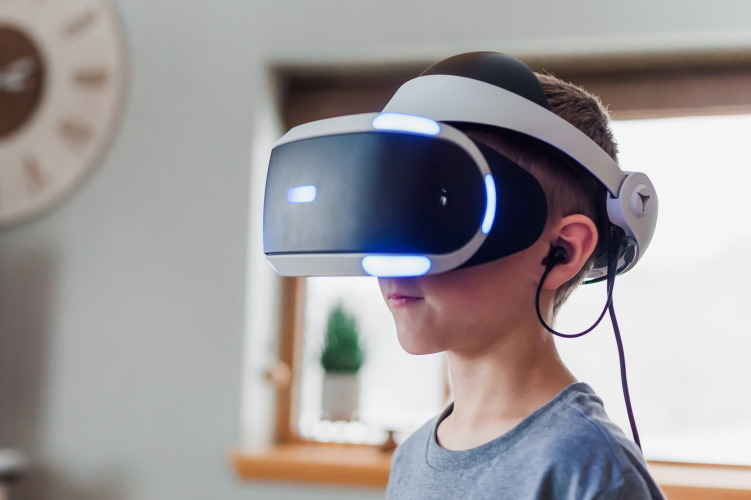Luminopia's digital therapy for lazy eye aces clinical trial

A digital therapeutic (DTx) for amblyopia – sometimes known as lazy eye – has been shown to improve vision correction over standard therapy in a phase 3 trial, according to its developer Luminopia.
The DTx – called Luminopia One – treats amblyopia by getting people with the condition to watch specially modified TV shows and movies using a virtual reality headset designed to promote use of the weaker eye.
The therapy is already under review by the FDA, with a decision expected in the coming months, according to the digital health company.
Amblyopia develops when there is a breakdown in how the brain and the eye work together, causing it to rely more heavily on signals from one eye and leading to a progressive weakening in the other.
The condition affects up to 3% of all children, and is conventionally treated by covering the good eye with a patch or lenses to force the other to work harder – which can be frustrating and stigmatising for young children.
With Luminopia One, children choose video content they want to watch, and software modifies the content in real-time to rebalance visual input to the brain.
In the phase 3 trial, Luminopia One coupled with the use of corrective glasses was compared to glasses alone in 105 children aged four to seven with amblyopia.
After 12 weeks, the difference between groups in weak eye improvement – as measured using the Best Corrected Visual Acuity (BCVA) scale – was significant, with users of the DTx reading an average of one line better on an eye chart.
Children using glasses alone saw a 0.8 line improvement, compared to 1.8 lines with Luminopia One treatment. Moreover, the proportion of children who improved by two or more lines in the weak eye was significantly higher with the DTx, at 62% versus 33%.
Patient satisfaction with Luminopia One was also high with 88% adhering to treatment over the study period, which is "substantially higher" than is generally seen with patching, according to the company.
"This study is the first randomised controlled trial to demonstrate efficacy of a novel, binocular approach for treating this neuro-visual condition in children," said Scott Xiao, Luminopia's chief executive.
He added that the DTX is "redefining what it means to receive treatment, by developing a product that allows patients to watch TV as therapy".
Another digital approach to treating amblyopia is being tested by Amblyotech, which was acquired by Novartis last year.
That takes the form of game software – which will be developed with gaming giant Ubisoft – that pairs with 3D glasses to train the eyes to work properly.
Photo by Jessica Lewis on Unsplash












